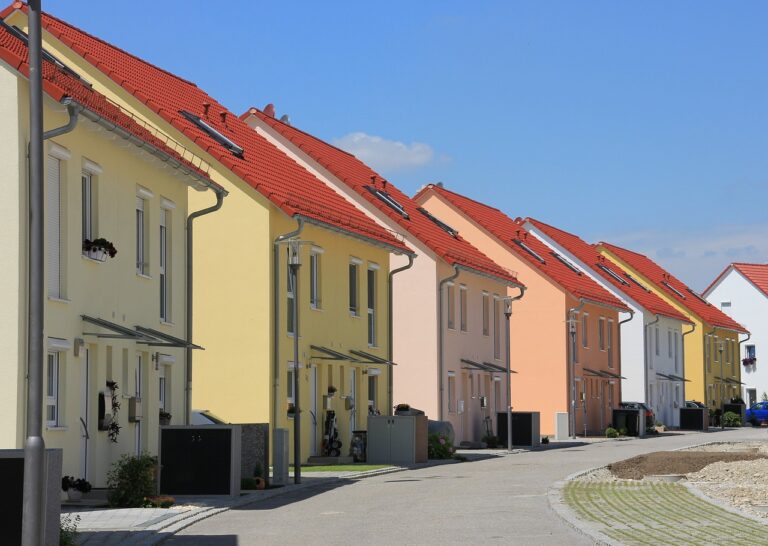The allure of sustainable camping experiences: eco-friendly stays in natural settings
Camping has long been a beloved pastime for outdoor enthusiasts seeking to immerse themselves in nature and disconnect from the hustle and bustle of everyday life. In recent years, there has been a growing trend towards sustainable camping experiences that prioritize eco-friendly practices and promote conservation efforts. These eco-friendly stays offer a unique opportunity to enjoy the great outdoors while minimizing our impact on the environment. From off-grid cabins to earth-friendly yurts, there are a variety of sustainable camping options available for nature lovers looking to tread lightly on the planet.
The Rise of Sustainable Camping
As awareness of environmental issues continues to grow, more and more camping enthusiasts are seeking out eco-friendly accommodations that align with their values. Sustainable camping is not just a trend; it is a movement towards more responsible travel practices that prioritize conservation and sustainability. By choosing to stay at eco-friendly campsites and lodges, campers can reduce their carbon footprint, support local communities, and contribute to the protection of natural habitats.
Benefits of Sustainable Camping
There are numerous benefits to choosing a sustainable camping experience. Not only does it allow campers to connect with nature in a more meaningful way, but it also helps to preserve the environment for future generations to enjoy. By supporting eco-friendly campsites, campers can play a part in promoting sustainable tourism and encouraging others to adopt more responsible travel practices. Additionally, many sustainable campsites offer unique amenities such as composting toilets, rainwater harvesting systems, and renewable energy sources, providing campers with a truly immersive and eco-conscious experience.
Types of Sustainable Camping Accommodations
There are a wide variety of sustainable camping accommodations to choose from, each offering its own unique charm and eco-friendly features. From cozy treehouses nestled in the forest to geodesic domes perched on the edge of a cliff, there is a sustainable camping option to suit every taste and budget. Some popular types of eco-friendly accommodations include:
1. Off-Grid Cabins
Off-grid cabins are a popular choice for campers seeking a rustic retreat in the wilderness. These cozy cabins are typically powered by solar panels or wind turbines and may have composting toilets and rainwater collection systems. Off-grid cabins offer a unique opportunity to disconnect from technology and reconnect with nature in a sustainable way.
2. Yurts
Yurts are traditional round tents that have been used by nomadic peoples for centuries. Modern yurts are often made from sustainable materials such as bamboo or canvas and are designed to blend seamlessly with their natural surroundings. Yurts provide a comfortable and eco-friendly camping experience, with many yurts featuring wood-burning stoves and solar lighting.
3. Tiny Houses
Tiny houses have become increasingly popular in recent years for their minimalist design and eco-friendly features. These small, sustainable homes are often built using recycled materials and powered by renewable energy sources. Tiny houses offer a cozy and compact camping experience for those looking to downsize and live more sustainably.
4. Glamping Tents
Glamping tents combine the luxury of a hotel with the adventure of camping, offering campers a comfortable and stylish place to stay in the great outdoors. Many glamping tents are equipped with solar power, composting toilets, and organic linens, providing a luxurious yet environmentally friendly camping experience.
5. Hobbit Holes
Inspired by the hobbit homes from J.R.R. Tolkien’s “The Lord of the Rings,” hobbit holes are underground dwellings that blend seamlessly into the natural landscape. These unique accommodations are often built using sustainable materials such as cob and reclaimed wood, creating a cozy and eco-friendly camping experience for fans of fantasy and nature alike.
Sustainable Camping Tips
When planning a sustainable camping trip, there are a few key tips to keep in mind to minimize your impact on the environment:
1. Leave No Trace
Follow the principles of Leave No Trace by packing out all of your trash, minimizing campfire impacts, and respecting wildlife and other campers. Leave your campsite better than you found it to preserve the natural beauty of the area for future visitors.
2. Use Eco-Friendly Products
Choose biodegradable and environmentally friendly products such as reusable water bottles, natural insect repellent, and eco-conscious camping gear. Minimize waste by packing reusable items and avoiding single-use plastics whenever possible.
3. Conserve Water and Energy
Practice water conservation by taking short showers, turning off taps when not in use, and using eco-friendly cleaning products. Use energy-efficient lighting and appliances to reduce your carbon footprint and lower your impact on the environment.
4. Support Local Communities
Support local businesses and communities by purchasing goods and services from nearby shops and restaurants. Get to know the area’s culture and history by participating in local activities and events, and leave a positive impact on the community by respecting local customs and traditions.
5. Educate Yourself and Others
Learn about the environmental issues facing the area where you are camping and take steps to protect and preserve the natural habitat. Share your knowledge and experiences with others to inspire them to adopt more sustainable camping practices and make a positive impact on the environment.
FAQs
Q: What is sustainable camping?
A: Sustainable camping refers to camping practices and accommodations that prioritize environmental sustainability and conservation efforts. This may include using renewable energy sources, minimizing waste, and supporting local communities.
Q: What are the benefits of sustainable camping?
A: Sustainable camping allows campers to connect with nature in a more meaningful way while reducing their impact on the environment. It promotes responsible travel practices and supports conservation efforts in natural areas.
Q: How can I practice sustainable camping?
A: To practice sustainable camping, follow the principles of Leave No Trace, use eco-friendly products, conserve water and energy, support local communities, and educate yourself and others about environmental issues.
Q: Where can I find eco-friendly camping accommodations?
A: Eco-friendly camping accommodations can be found at sustainable campsites, lodges, and resorts that prioritize conservation and sustainability. Websites like EcoCamp and Hipcamp offer a wide variety of eco-friendly camping options in natural settings.
By choosing sustainable camping experiences, campers can enjoy the beauty of the great outdoors while supporting environmental conservation efforts and promoting responsible travel practices. Whether staying in an off-grid cabin, a geodesic dome, or a hobbit hole, eco-conscious travelers can make a positive impact on the environment and create lasting memories of their outdoor adventures.







